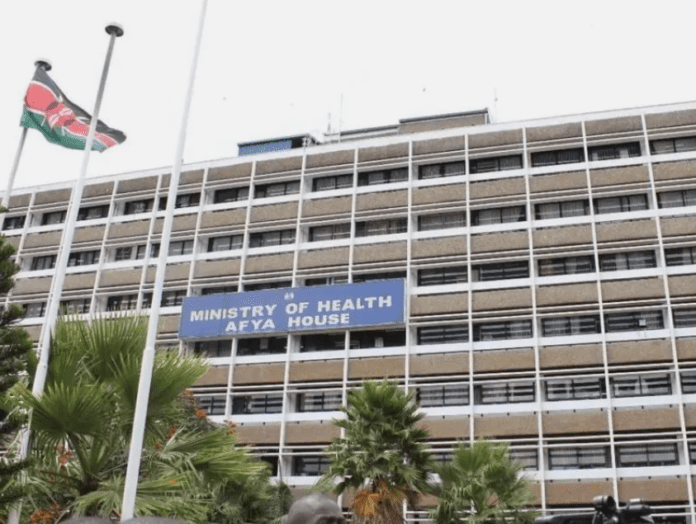The Ministry of Health has reassured Kenyans that the recent halt in United States foreign aid will not compromise the security of HIV and STI patient health records.
The assurance comes in response to concerns raised following a high-level meeting between the ministry and key stakeholders, where it was revealed that the Kenya Health Information System (KHIS) had faced temporary disruptions due to the funding cuts.
The interruption reportedly affected access to national aggregate HIV programme data, which is essential for monitoring and reporting.
Addressing these concerns, the Ministry of Health affirmed that patient data related to HIV and sexually transmitted infections (STIs) remains securely stored within its servers and is only accessible to authorized personnel.
“The Ministry of Health assures all Kenyans that HIV and STI data is primarily used to support patient care and service delivery. The information is securely stored and managed within ministry servers and remains unaffected by the funding cuts,” the ministry stated.
Officials also emphasized that despite the foreign aid suspension, confidentiality measures remain intact, ensuring that patient health records are protected.
The funding freeze follows policy shifts introduced by former U.S. President Donald Trump after assuming office on January 20.
The suspension included a halt on USAID-funded programs worldwide, significantly affecting healthcare, food security, and poverty alleviation efforts in developing countries, including Kenya.
In light of these challenges, the Kenyan government has initiated measures to ensure uninterrupted HIV care. A series of meetings with governors, the Parliamentary Health Committee, and development partners have been held to assess the funding impact and develop mitigation strategies.
Among the key resolutions adopted:
- Establishing a multi-sectoral monitoring committee to track the effects of funding disruptions.
- Prioritizing emergency access to essential HIV, tuberculosis, and malaria medication.
- Seeking alternative financing to address gaps in commodities and healthcare personnel.
- Encouraging county governments to redeploy existing health workers to minimize service gaps in HIV, TB, and malaria care.
Additionally, discussions are ongoing to integrate donor-funded health initiatives into the broader public health system, reducing reliance on external funding.
While HIV prevention and treatment services have resumed, stakeholders acknowledged that some programs have yet to fully recover. Initiatives such as community outreach, peer-led education, and differentiated service delivery have been affected by funding constraints.
There have also been reports of stigma and discrimination following the integration of HIV services into general outpatient clinics, with concerns over involuntary disclosure and breaches of patient confidentiality.
Despite the funding freeze, the Kenyan government has assured the public that there are adequate stocks of HIV-related medical supplies available in the country. Officials have also indicated that Kenya is actively engaging with U.S. authorities to seek the continuation of USAID-funded health programs.
“Recent policy decisions by some development partners have posed challenges to health financing. However, we remain committed to ensuring that these changes do not disrupt essential healthcare services,” Deputy President Kithure Kindiki stated in February.
Should diplomatic talks fail, the government has pledged to absorb the KSh 24.9 billion funding shortfall into its national budget, with KSh 2 billion already set aside for vaccine procurement and an additional KSh 2.5 billion earmarked to cushion against disruptions caused by Gavi’s funding freeze.
The National Syndemic Diseases Control Council (NSDCC) also reassured Kenyans that stocks of antiretroviral and tuberculosis drugs remain sufficient despite the ongoing funding challenges.





![SHA Suspends Dozens of Health Facilities Over Alleged Fraud [LIST]](https://citymirror.ke/wp-content/uploads/2024/12/image-14-218x150.png)

